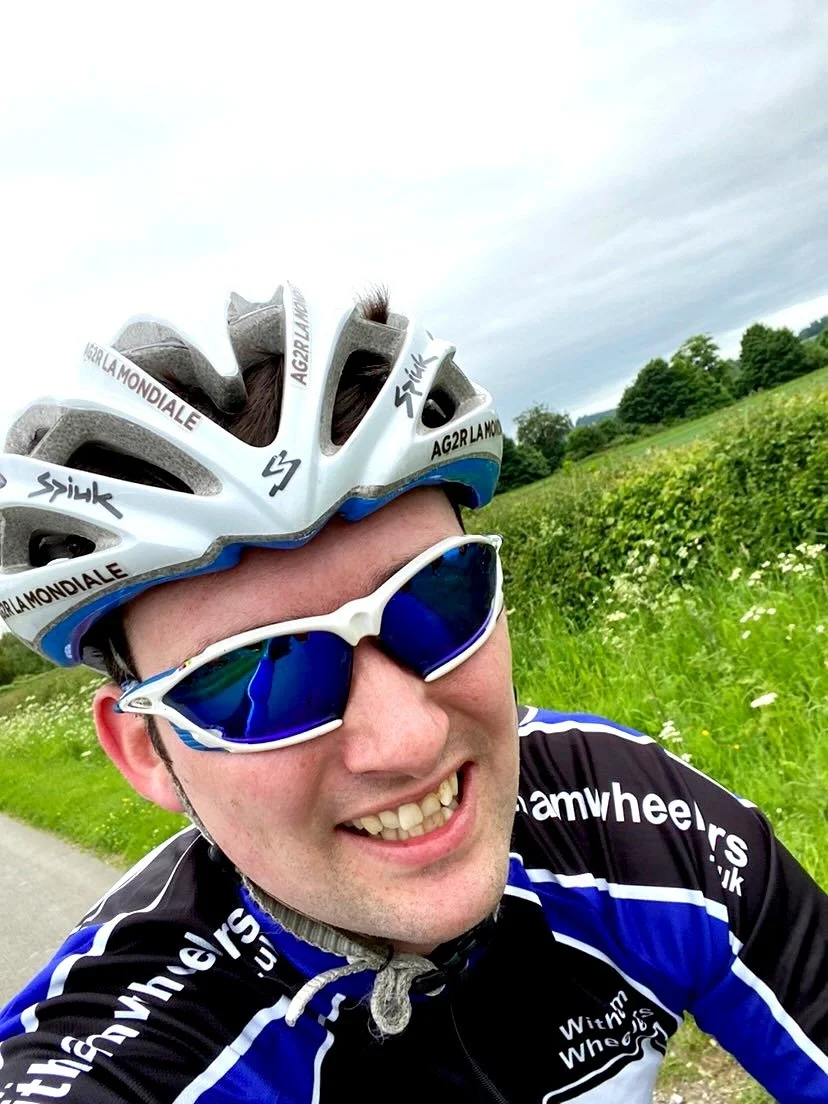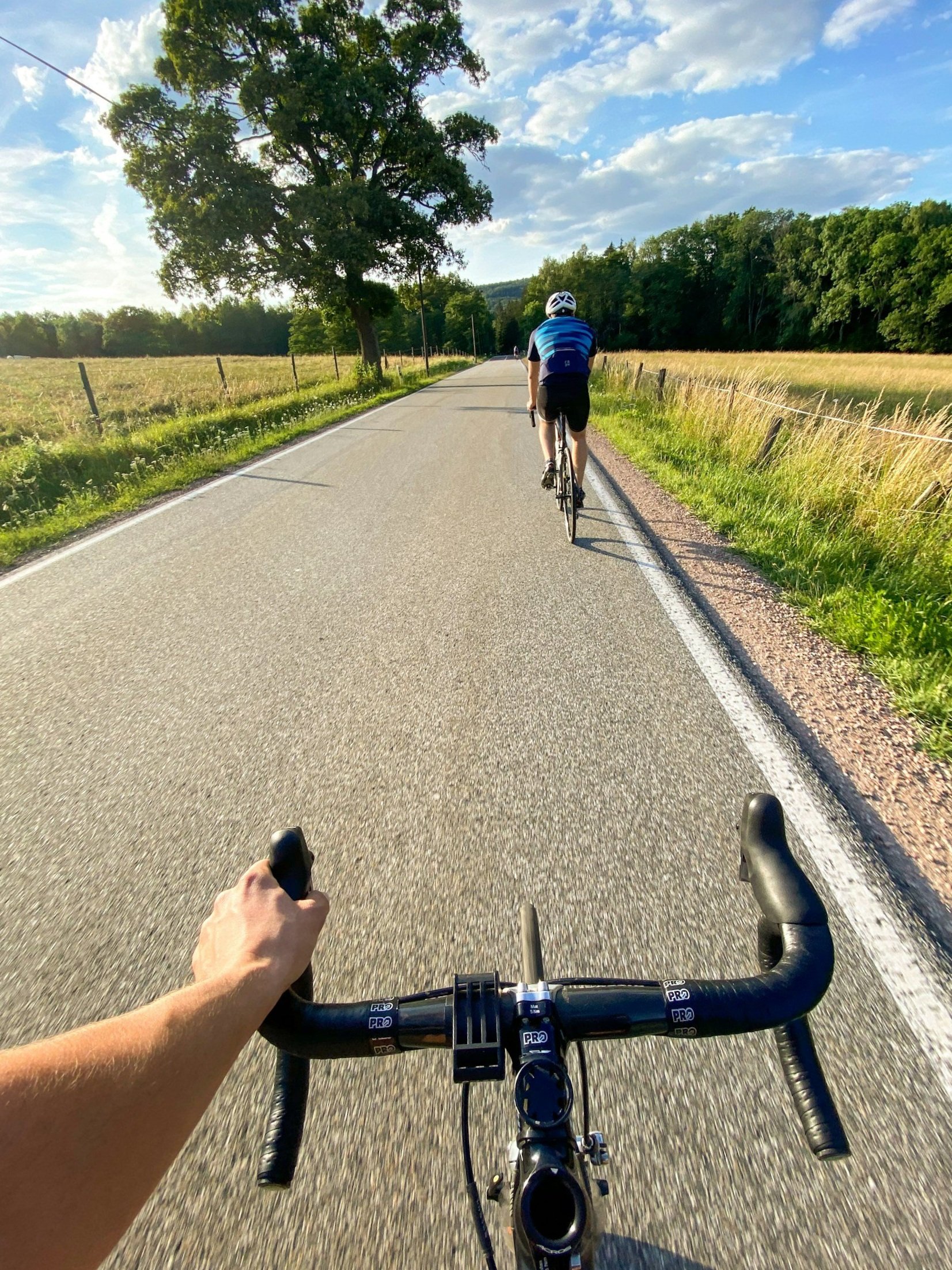Status Quo: Peter’s Story of Passion, Persistence, and Pushing Back Against the Mould
Introduction
Peter Barnes is a father of two, a project manager in the translation industry, and a passionate cyclist. While sport has always been a driving force in his life, his journey through it hasn’t been straightforward—especially as someone who never quite fit the mould. Our conversation revealed themes that often arise when speaking with neurodivergent or non-conforming athletes: the debate around self-diagnosis and ADHD, the impact of early sport experiences, and the toll of rigid sporting systems that resist adaptation. Through honesty and persistence, Peter has found a way to stay connected to sport—and to advocate for change from within.
This Blog Post Raises An Important Question
→ If rigid systems require individuals to be labelled before they’re allowed to work or train in ways that suit them best, can that really be considered effective—or is it the systems that need to change?
Peter Barnes, Amateur Cyclist, Cycling Enthusiast
Diagnosis or Understanding? The ADHD “Issue”
Peter hasn’t been formally diagnosed with Autism or ADHD, but he strongly identifies with traits of both. He’s never used this understanding as an excuse—but it has given him clarity. Recognising his tendencies toward burnout, for example, has allowed Peter to stop beating himself up and instead make conscious changes to how he works and lives. Though he’s never been medicated, following advice typically directed at neurodivergent individuals has made him more effective and more self-compassionate.
At the heart of this conversation is a growing question in sport and society: do we really need a diagnosis to justify working differently? Peter’s story suggests no. Everyone’s brain is different, and if a label helps someone access support or unlock better performance, then it shouldn’t be a source of debate. It should be respected.
Early Experiences: The Long Shadow of School Sport
Peter’s experience with school sport was, in many ways, textbook for a neurodivergent child. He was bullied. He struggled with social situations. He found it hard to coordinate his movements in fast-paced ball sports like football and cricket—but was rarely offered alternatives.
Although he wanted sport to be his escape, it often became another space where he didn’t belong. Assigned joke roles like “left back in the changing rooms,” Peter was rarely given the chance to develop his skills in a supportive, paced, or explicit way.
But a turning point came when Peter chose Physical Education for GCSE. This gave him a doorway into a broader world of sport—one that wasn’t limited to mainstream team games. He chose cycling as his focus, started training, joined a club, and worked his way to competitive Junior level, even racing in the Isle of Man Youth Tour.
Cycling became a sport where he could lean into his strengths—endurance, enthusiasm, and drive. Fine motor control still posed a challenge, but he found a rhythm. He felt included. He felt like he belonged. At least for a while.
Peter Barnes, Amateur Cyclist, Cycling Enthusiast
Fighting the Mould: Conformity in Sport
Peter’s relationship with sport, particularly cycling, has never been linear. Even when he found a sport that fit, staying in it wasn’t easy. Life happened. Confidence dipped. And time and again, Peter was met with one inflexible phrase: “But this is how we do it.”
He was expected to train a certain way, behave a certain way, and recover a certain way—regardless of whether it worked for him.
Peter believes this mindset drives many athletes away from sport unnecessarily. He suggests that coaches reflect on whether their processes serve their athletes, or merely themselves. “I have a way I want this done,” they might think—but what if that way doesn’t fit the person in front of them?
This isn’t just philosophy for Peter—it’s personal. At work, when he finally opened up about needing accommodations, his manager responded, “It’s great you’re unique. Everyone’s unique.” It wasn’t performative. It was permission. That mindset, Peter believes, should be more common in sport.
The Human Side of High Performance
According to Peter—who continues to interview elite athletes via his podcast—elite systems, particularly within nationally governed sport and some professional teams, are deeply rigid. As a result, athlete turnover is high. Many get injured, burned out, or disillusioned. 'People forget that athletes are human,' Peter says. 'Coaches forget too.'"
The reality is: we need to stop designing sport around those who conform most easily, and instead design it to work for the widest range of humans. Because that’s what athletes are—humans first.
Peter is still passionate about sport. Still cycling. Still trying to bring about change. He may not have followed the traditional path, but then again, maybe that’s the point.
Final Thoughts
Peter’s story is a reminder that sport doesn’t have to be about fitting in—it can be about forging your own way. Whether or not you have a formal diagnosis, your way of thinking, learning, training, and thriving is valid. For every athlete who has been told “this is how we do it,” Peter offers an alternative: ask “what works for you?”
He’s not anti-performance. He’s pro-human. Let’s keep creating spaces where people like Peter don’t have to push back against the mould—because we’ve stopped forcing them into it.
You can follow Peter’s ongoing reflections and cycling journey on Instagram: @agypbuon.
Key Takeaways for Neurodivergent Individuals
Work Your Way
→ You don’t need permission to work or train differently—do what works for you, even if it looks different.
Keep Exploring
→ Don’t let one negative experience define your whole relationship with sport—your fit is out there.
Own Your Insight
→ Understanding yourself—diagnosed or not—is powerful; self-awareness is a strength, not an excuse.
Key Takeaways for Peers, Supporters, and Parents
Listen First
→ Trust people when they say they need something different—curiosity builds connection.
Value People, Not Protocols
→ Celebrate effort, adaptation, and individuality—not just outcomes or standardised processes.
Support Flexibility
→ You don’t have to be a coach to help—champion environments where people can thrive differently.
Key Takeaways for Coaches, Leaders, and Organisations
Check Your Biases
→ Ask whether your methods fit the athlete—not just the tradition of the sport.
Widen the Gateway
→ Don’t limit access to those who conform—offer different ways in, especially beyond ball sports.
See the Human First
→ No matter the level, sport should meet the needs of humans—not just the metrics of athletes.
This blog post was written by Caragh McMurtry. Subheadings were added by the Neurodiverse Sport team to support readability.


